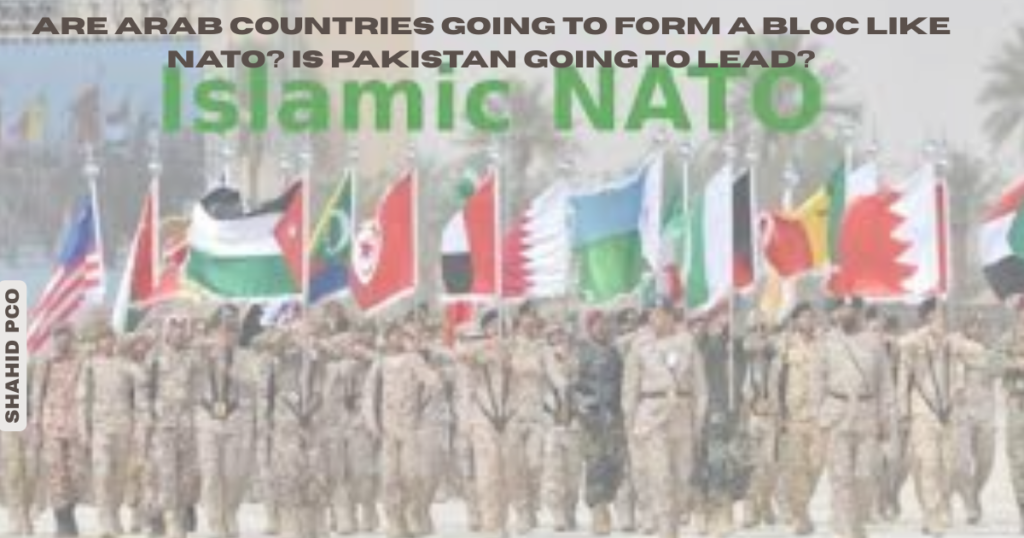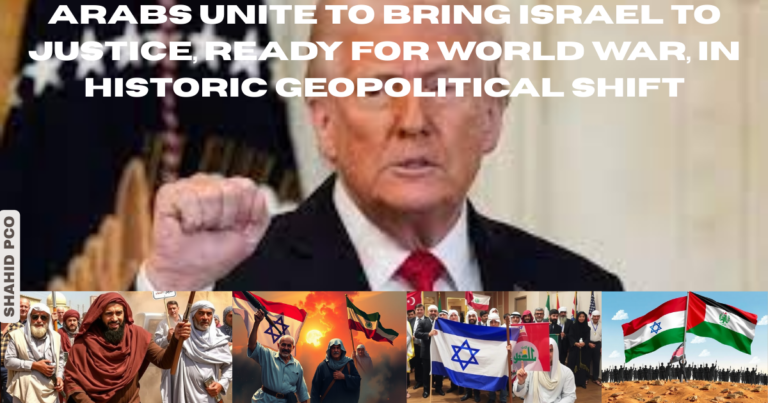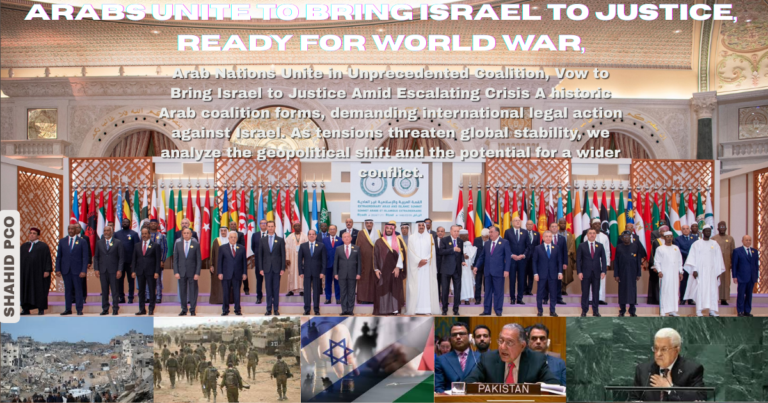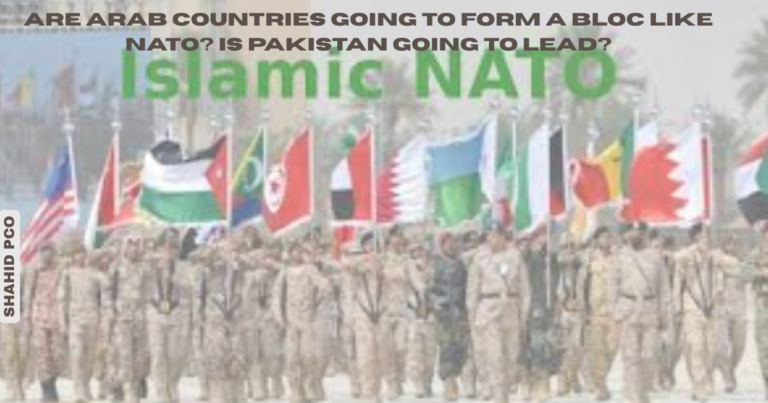
Are Arab countries going to form a bloc like NATO? Is Pakistan going to lead?
The recent announcement of a new joint military force by the Islamic Military Counter Terrorism Coalition (IMCTC) has sparked discussions about a potential “Islamic NATO” or “Arab NATO.” However, it’s crucial to understand the distinctions between this initiative and a true NATO-like alliance. Furthermore, the idea of Pakistan leading such a bloc is a complex geopolitical question.
1. The New Initiative: IMCTC Joint Force
In early 2024, the IMCTC—a 41-member coalition of Muslim-majority countries headquartered in Riyadh, Saudi Arabia—announced the creation of a “joint force.” This force is designed to coordinate military efforts to counter terrorism and violent extremism within member states, not to act as a collective defense pact against external aggression.
Key Differences from NATO:
- Purpose: NATO (North Atlantic Treaty Organization) is a collective defense alliance. An attack on one member is considered an attack on all (Article 5). The IMCTC’s stated goal is counter-terrorism, which is fundamentally different.
- Structure & Integration: NATO has a deeply integrated military command structure, shared standards, and joint deployments. The IMCTC joint force is envisioned more as a coordinating and intelligence-sharing body.
- Scope: NATO addresses a wide range of threats from state actors. The IMCTC focuses on non-state terrorist organizations.
2. Is This a True “Bloc Like NATO”?
Short answer: No, not in the foreseeable future.
While the term “Islamic NATO” is a catchy media headline, the reality is far more fragmented. The Muslim world, and the Arab world in particular, is marked by:
- Competing Alliances: Deep rivalries exist, most notably between Saudi Arabia and Iran. A true NATO-like bloc requires a level of political and strategic unity that currently does not exist.
- Diverse Foreign Policies: Member countries have vastly different relationships with global powers like the US, China, and Russia. Aligning these into a single defense framework is immensely challenging.
- Internal Challenges: Many potential member states face significant internal political and economic instability, making a commitment to a broad mutual defense treaty unlikely.
This initiative is best understood as an enhanced counter-terrorism partnership, not a foundational step for a full military alliance akin to NATO.
3. Is Pakistan Going to Lead?
The question of Pakistan leading this bloc is intriguing but faces significant hurdles.
Arguments For Pakistan’s Leadership Role:
- Military Capability: Pakistan has one of the largest and most experienced militaries in the Islamic world, with a history of participating in international peacekeeping missions.
- Nuclear Power: As a nuclear-armed state, it carries significant strategic weight.
- Historical Ties: Pakistan has deep religious, historical, and military ties with Saudi Arabia and other Gulf Arab nations and has provided military advisors and support in the past.
Arguments Against Pakistan’s Leadership:
- Saudi Leadership: The IMCTC is a Saudi-initiated and Saudi-funded organization. Its headquarters is in Riyadh, and the Secretary-General has always been a former Saudi military official. Saudi Arabia, as the financial and ideological driver, is the de facto leader.
- Geopolitical Balancing: Pakistan maintains a delicate balance in its foreign policy. It has a long-standing relationship with Saudi Arabia but also must manage its crucial strategic and economic partnership with China and its complex relationship with Iran. Taking a overt leadership role in an Arab-dominated bloc could upset this balance.
- Economic Constraints: Pakistan’s economy is not strong enough to bankroll or sustain leadership of a major international military alliance. Leadership often comes with financial responsibility, which falls to wealthier Gulf states.
Conclusion on Leadership: While Pakistan is a key and influential member, the bloc is Saudi-led. Pakistan may play a prominent operational or advisory role due to its military expertise, but it is not positioned to assume overall leadership from Saudi Arabia.
Final Conclusion
The formation of a true Arab or Islamic bloc like NATO remains a distant possibility due to profound political divisions. The recent IMCTC joint force is a meaningful step in counter-terrorism cooperation but falls far short of a mutual defense pact.
Regarding leadership, the initiative is spearheaded and funded by Saudi Arabia, not Pakistan. Pakistan’s role will be that of a critical military partner within a Saudi-led framework, not the overall leader of the bloc. The focus keyword questions highlight an interesting concept, but the on-the-ground realities are shaped more by counter-terrorism needs and Saudi strategic interests than by the creation of a new NATO.




